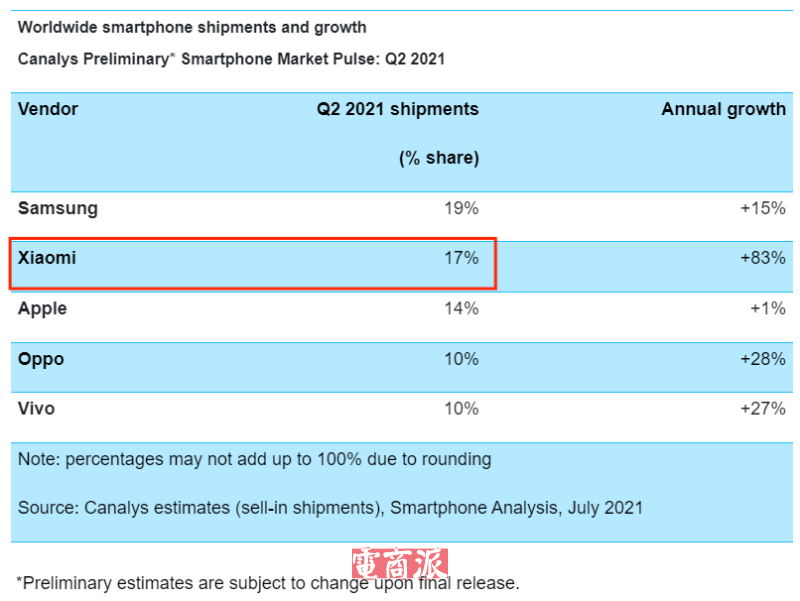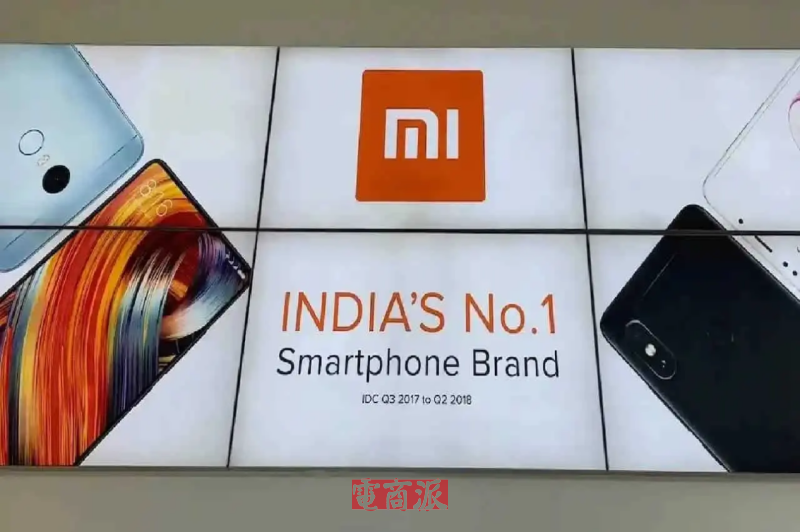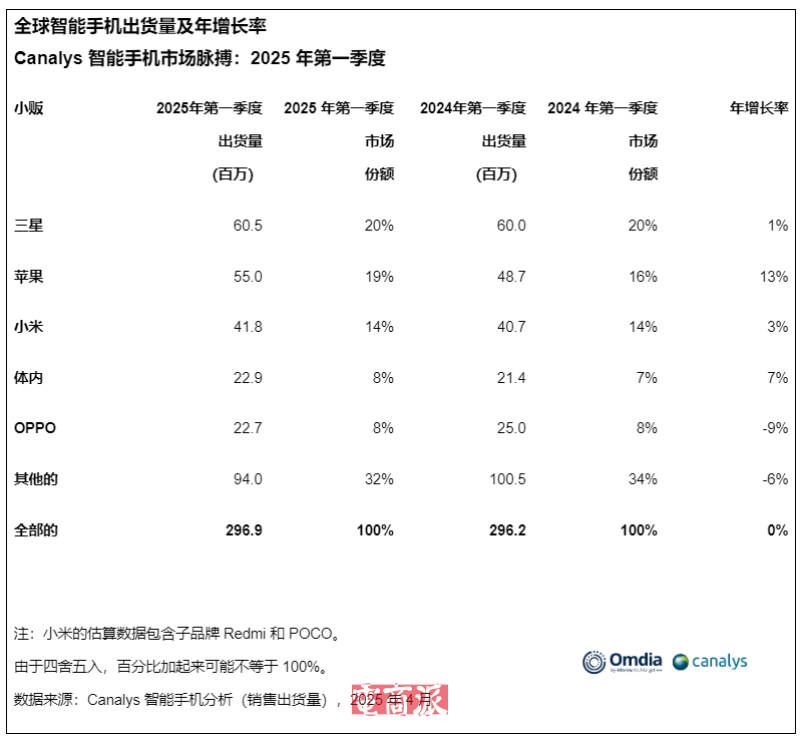Xiaomi accelerates globalization and opens its first store in South Korea
Created on 2025.07.25
1. The first store in South Korea has opened for business
Xiaomi, known for its cost-effectiveness, is accelerating its expansion into high-end overseas markets.
Recently, Xiaomi Korea announced that it will open a "Xiaomi Store" at the IFC Shopping Center on Yeouido Island in Seoul this Saturday, which is Xiaomi's first offline store in Korea.

Xiaomi's first store in Korea is about to open. Source: news.nate
This store will be presented in the form of an exhibition hall, displaying various Xiaomi products such as smartphones, tablets, smartwatches, televisions, and home appliances. There is also an experiential exhibition hall in the store that replicates real-life scenes, making it convenient for consumers to personally experience the products. In addition, customers who place orders over 15000 Korean won (approximately 79 RMB) in the store can also enjoy free delivery services. Xiaomi Korea stated, "The opening of the new store will be a landmark event and an important milestone for Xiaomi's new retail model to enter the Korean market.
After the opening of the Korean store, Xiaomi plans to launch multiple new products, some of which have never been launched before. Korea will become one of the first countries to launch these products. Insiders revealed that Xiaomi is expected to sell smartphones, tablets, and small appliances in stages, and then launch large appliances such as refrigerators and washing machines next year.
In January of this year, Xiaomi opened a branch in South Korea and simultaneously launched an online store for Korean consumers. During this period, Xiaomi Korea released a series of products, including smartphones Redmi Note 14T series and Redmi Note 14 series, all TV products, and some small appliances, marking Xiaomi's official entry into the Korean market.

Xiaomi officially enters South Korea. Source: xiaomitime
But when these products enter the Korean market, the impact is not significant. Compared with Samsung and Apple, Xiaomi's first batch of products mainly have the advantage of cost-effectiveness, and their attractiveness to high-end users is not strong; In addition, Samsung and Apple both have strong ecosystems with relatively high user loyalty. To seize market share from these two giants, Xiaomi must establish deeper connections with consumers.
Taking into account various factors, opening a store has become one of the most urgent and feasible strategies. The Korean retail team commissioned by Xiaomi stated that the shopping center where Xiaomi's first store is located gathers a large number of high-income office workers and technology consumers, who are most suitable for Xiaomi's positioning in Korea and can accelerate Xiaomi's entry into the high-end electronics market in Korea to a certain extent.
2. Accelerate global expansion
At the 2014 World Internet Conference, Lei Jun proposed that Xiaomi mobile phones should catch up with Apple and Samsung within 5-10 years. At that time, it seemed that this goal might be far away. But now, it has been proven that Xiaomi is really working hard to achieve it.
According to data from Canalys, a global technology market analysis company, Xiaomi surpassed Apple for the first time in the second quarter of 2021 to become the world's second-largest smartphone supplier. Although quickly overtaken by Apple, this is undoubtedly an important breakthrough for Xiaomi.

Xiaomi's mobile phone shipments once surpassed Apple's source: Canalys
Behind such achievements, Xiaomi has been struggling for a long time. Xiaomi chose India as its first destination for overseas expansion. Although the challenges here are complex, the market size is huge. In 2014, Xiaomi entered the Indian market through the local e-commerce platform Flipkart, rapidly expanding through online direct sales and hunger marketing models. This year, Xiaomi captured 1.5% of the Indian smartphone market share.
In the following two to three years, Xiaomi has been deeply cultivating and working in India, and by the end of 2017, it successfully topped the Indian smartphone market with a share of 26.8%. The successful first stop at sea has doubled Xiaomi's confidence. Outside of India, Xiaomi is accelerating its layout in Latin America, Southeast Asia, and Europe, focusing on both emerging and high-end markets.

Xiaomi tops the Indian mobile phone market. Source: GizChina
In Latin America, Xiaomi phones have gradually risen to the top 2 in the regional market, starting from Mexico; In Southeast Asia, Xiaomi phones have simultaneously expanded to countries such as Indonesia, Thailand, and the Philippines, and have also won the top 2 regional markets; In Europe, Xiaomi's momentum is also strong, with Spain as a springboard, becoming the top 3 in the regional market. In addition, Xiaomi is also among the top three mobile phone brands in the Middle East and Africa.
According to the latest data from Canalys, in the first quarter of this year, Xiaomi continued to maintain its position as one of the top three global mobile phone suppliers with a shipment volume of 41.8 million units and a market share of 14%, second only to Apple and Samsung.

Xiaomi firmly ranks among the top three global mobile phone manufacturers. Source: Canalys
After ten years of accumulation, Xiaomi now has a clearer vision for its future path. Xiaomi Group President Lu Weibing has made it clear that by 2027, Xiaomi aims to achieve a shipment volume of over 200 million phones, forming a tripartite situation with Apple and Samsung. At present, Xiaomi's annual shipment volume of smartphones is 169 million units.
In addition to striving to become a mobile phone giant, Xiaomi also needs to fully implement the Xiaomi ecosystem overseas. In Xiaomi's five-year strategic plan, the company aims to increase its annual R&D investment to over 30 billion yuan; Open 10000 "Xiaomi Home" stores overseas; Strive to achieve automobile exports by 2027; And this year, we will launch a large-scale electric vehicle to go global; Ultimately achieving the ecological development of people, cars, and homes.
It can be confirmed that Xiaomi is replicating the Xiaomi model in all aspects, from product expansion to ecological expansion. For Xiaomi, this is its transformation from a Chinese brand to a global technology leader. For the entire industry, this may also be a sudden inspiration. After Xiaomi, more outstanding enterprises will also shine in the international market.
Contact
Leave your information and we will contact you.


